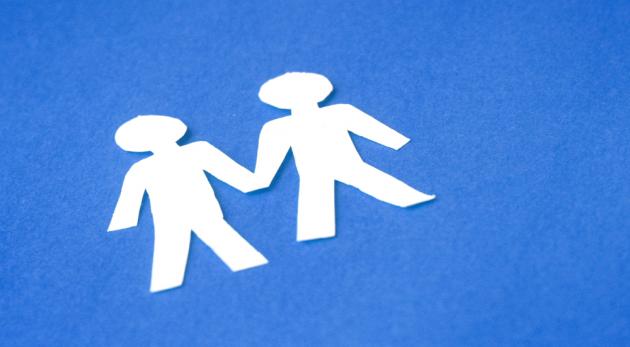Gilead Sciences’ Truvada recently gained an indication to be taken as a PrEP therapy to prevent HIV in Korea, bringing into question whether Koreans without an HIV infection will take the drug.
■ Related : Gilead Sciences Korea gets expanded indication for Truvada to prevent HIV
The number of Koreans with AIDS has jumped across all age groups annually, running in the opposite direction of the decreasing number of AIDS patients in other countries. AIDS refers to the final stage of human immunodeficiency virus (HIV). HIV attacks the immune system and ultimately destroys a person’s immune system, leading to death.

The social phenomenon of becoming sexually active at a younger age and the unintended consequences of outlawing prostitution has ironically driven the increase in HIV infections in Korea, especially among youth. According to the Korea Centers for Disease Control and Prevention, the number of newly diagnosed AIDS patients in Korea amounted to 1,062 cases last year, recording a 30 percent increase from 740 people diagnosed in 2007.
■ Related : Where does Korea stand in ‘90-90-90’ program to eliminate AIDS?
Now Truvada can serve as a pivotal therapy to slash the rate of new HIV infections. The treatment, developed by California-based Gilead Sciences, has long been used in other parts of the world as a preventive therapy for high-risk populations such as men who have sex with other men or those who have partners who are HIV-1 positive.
Taking Truvada as a preventive step, also known as pre-exposure prophylaxis (PrEP), is a way for people who do not have HIV-1 but who are at substantial risk of contracting the disease.
PrEP has shown to drop the risk of HIV infection by 92 percent when taken consistently, according to the U.S. CDC. A pivotal PROUD study that studied men who had sex with men in Britain showed the risk reduction to be 86 percent.
In places like San Francisco, the number of new patients has dropped by almost 50 percent, according to Professor Kim Tae-Hyong from Soon Chun Hyang University Hospital’s department of infectious disease, and member of Korean Society of Infectious Diseases.
Despite the efficacy, however, Kim noted that the success of the drug would rely less on financial cost or drug efficacy but more on social and cultural ones.
“The recent approval from the Ministry of Food and Drug Safety to use the drug as a preventive therapy already signals that the drug is effective in a high-risk population. But just because the existence of a method does not mean that it will be realized in real-life,” Kim said.
“We need to see how people will respond to the drug in our society,” Kim continued. “Clinical trials have proved the efficacy of the drug, sure, but it’s because the subjects did exactly as they were told by physicians. To popularize Truvada in Korea, the core problem is whether we can shift from doctor-oriented to individual-led treatment culture.”
Whether the drug will be accepted culturally in Korea remains a crucial question.
“An individual who does not have an HIV infection will have to go to the doctor and ask for the drug and take it braving social pressure,” Kim said. “The drug needs to be launched considering Korean culture.”
Professor Shin Hyoung-shik from the National Medical Center’s department of infectious disease pointed to the discrimination against gays and the difficulty of broaching the topic of homosexuality in Korea.
“Korean society sometimes discriminates against people at high-risk for HIV, and the entire subject is often taboo. People who want to take the drug may not be able to do so, even with government support, because they fear discrimination,” Shin said.
According to a local survey of 104 HIV-infected individuals, 75 percent of those polled said they suffered from self-reproach, 64 percent felt guilty, and 51 percent had a sense of shame. Most patients gained information about HIV treatment through anonymous Internet boards due to the stigma associated with the disease.
On top of social and cultural factors, the two professors also pointed out the apparent financial barrier to taking the drug. In Korea, one pill of Truvada will cost 13,730 won ($12.7), which translates to around 420,000 won ($390) a month.
“Considering the economy right now, paying around $400 a month for Truvada will highly likely be a financial burden for most,” Professor Shin said, calling for the government to play a more supportive role. “If the government wants to pursue policies that reduce HIV infections, it should financially support Truvada at a reasonable range. If not, the high cost of the drug may lead to several unforeseen consequences.”
Leaving the drug uninsured may lead Koreans to buy Truvada at a lower price from overseas, such as India or Thailand, leaving them exposed to the risk of getting conned, Shin noted, reaffirming the importance of government support. People in the U.K., for example, have been reported to acquire Truvada from these countries at one-tenth the price.
“Of course, we all want lower drug prices and standard therapies. But it’s not always feasible in a capitalistic society,” Kim said. “If the importance of the drug is recognized in Korea, accepted socially, and proves to stop infections in the country, however, then the health authorities should recognize that and reimburse the drug. The approval of Truvada signals that we have taken one step forward, but we still have a long way to go.”

